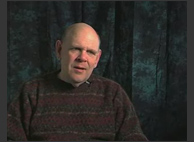| AOTA: Integrating Methodologies and Team Efforts | |
| ASA: Living with Autism | |
| Adam, Age 8 | |
| Ryan, Age 23 | |
| NICHCY: Tips for Parents & Educators (pdf) | |
| State Resources and Contact Info | |

For many patients and families, their primary care physician remains a vital source of information and guidance on the care of patients with autism. Although there are centers of excellence that specialize in the care of autism, not every state has such a resource. In addition, the waiting lists for some of these centers can be almost a year.
As a result, the primary care physician can become a vital gateway to resources for families and patients. This section provides information to help physicians better anticipate the questions and needs of their patients. Helping patients and families anticipate challenges can be a vital factor in the effective longitudinal management of this condition.
In addition, awareness of available resources may allow for more efficient referrals that can help shift care to appropriate service providers.
Topics
- What Parents Ask
Answers to some common questions that parents ask about autism (CDC, NICHD).
- Encouraging Next Steps
Even after a diagnosis or referral is suggested, families may need encouragement and guidance through the different health provider systems (First Signs).
- Education System
An overview of the different ways the education system can support a child with autism throughout their academic life (NIMH).
- Peer Interactions
Some challenges and approaches toward the development of peer relationships (IRCA).
- Siblings
Just like any chronic illness, don't forget the siblings.
- Sexuality
Some Issues to consider as a patient with autism matures and develops (IRCA).
- College
A guide to preparing for the academic and social challenges of college (IRCA).
- Employment
Ten recommendations that adult service profiders should be aware of as patients with autism search for employment placements (IRCA)
- Adulthood
An overview to helping patients and families transition to adulthood (IRCA)
- Estate
A guide and 10 step process to developing an estate plan for a patient with autism (ASA)



